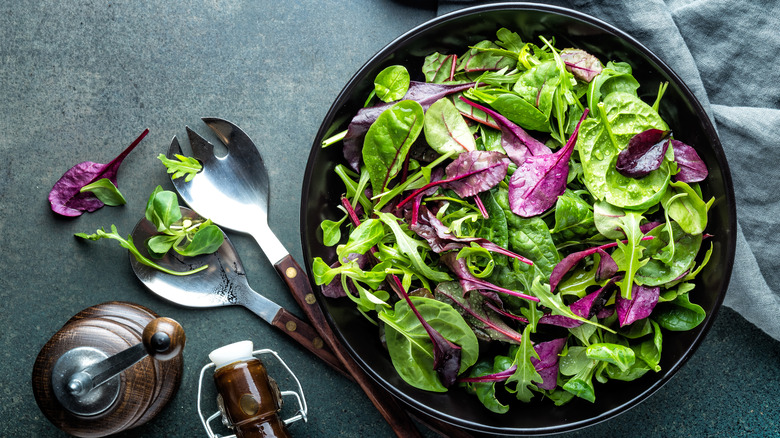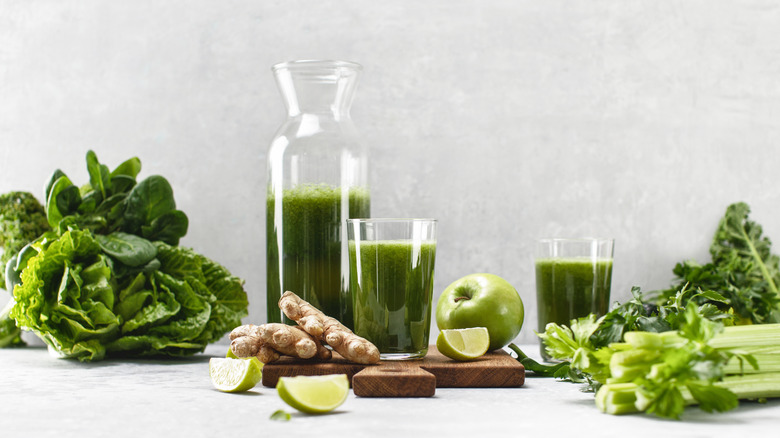What Really Makes Leafy Greens A Good Dietary Addition
Many of us have one particular saying drilled into our heads during childhood: Eat your greens. It turns out that this is for a pretty obvious reason: They're incredibly good for you. Registered dietitian nutritionist Jaime Bachtell-Shelbert of Wholly Nourished told Mashed that leafy greens are one of the most nutrient-packed foods you can eat. Kale, in particular, is considered to be one of the most "super" of these superfoods. As Verywell Fit explains, nutrient-dense foods contain a high proportion of nutrients (such as vitamins, fiber, etcetera) by volume. These foods often provide a powerhouse of nutrition for a lower number of calories.
Most leafy greens tend to be a rich source of antioxidants, as well as fiber, and contain vitamins and minerals like iron, calcium, folate, potassium, magnesium, vitamin K, and vitamin C, says Bachtell-Shelbert. The RDN also says that leafy greens can reduce the risk of certain chronic ailments, from Type 2 diabetes to cancer and cardiovascular disease. Of the USDA's recommended 18 to 21 cups of vegetables per week, at least 2 cups of these should be composed of leafy greens (though the exact serving varies depending on age and lifestyle), per SFGate. It doesn't hurt to bump that quantity up more: Research from the "Neurology" journal suggests that eating one serving of leafy greens a day slows the rate of cognitive decline that occurs with age.
The best way to prepare leafy greens, according to a dietician
Clearly, the benefits of eating leafy greens are many. The way you prepare them, however, can affect their nutritional profile. According to Bachtell-Shelbert, cooking leafy greens can be tricky because boiling them can drain away their vitamin C, among other nutrients. To soften your greens without letting their antioxidants disappear into cooking water, you can instead steam or sauté them. Don't worry about adding fat to your cabbage or collards: Not only will they taste better, but their nutrients will also absorb into your bloodstream more effectively since some vitamins are fat-soluble, Fine Cooking explains. Similarly, adding vitamin C-rich citrus to your spinach or kale will help your body digest their iron.
Alternatively, Bachtell-Shelbert suggests blending leafy greens into a smoothie, as it ensures that no nutrients or fiber are lost. As for which greens you should be eating, "kale reigns supreme," she said, but arugula, chard, and the options mentioned above "are all excellent choices."

